Introduction to Semi Trailer ABS Codes
In the realm of commercial transportation, safety and reliability are paramount. One critical component ensuring both is the Anti-lock Braking System (ABS) in semi trailers. As the backbone of freight movement, semi trailers equipped with advanced ABS technology not only enhance braking performance but also contribute to overall vehicle stability and safety. However, like any sophisticated system, ABS is susceptible to issues that, when not promptly addressed, can lead to significant operational disruptions. This comprehensive guide delves into semi trailer ABS codes, offering an in-depth understanding of their meanings, diagnostic procedures, and maintenance strategies to keep your fleet running smoothly.
Understanding the Importance of ABS in Semi Trailers
The Anti-lock Braking System (ABS) plays a crucial role in preventing wheel lock-up during braking, allowing the driver to maintain steering control under hard braking conditions. For semi trailers, which often carry heavy loads over long distances, ABS is indispensable for several reasons:
- Enhanced Safety: ABS reduces the risk of skidding and loss of control, especially on slippery or uneven roads.
- Improved Braking Efficiency: By modulating brake pressure, ABS ensures optimal braking force is applied, reducing stopping distances.
- Reduced Tire Wear: Preventing wheel lock-up minimizes tire scuffing and extends tire lifespan.
- Compliance with Regulations: Many regions mandate ABS in commercial vehicles, making it essential for legal compliance.
Given these benefits, understanding and maintaining ABS systems are critical for semi trailer operators.
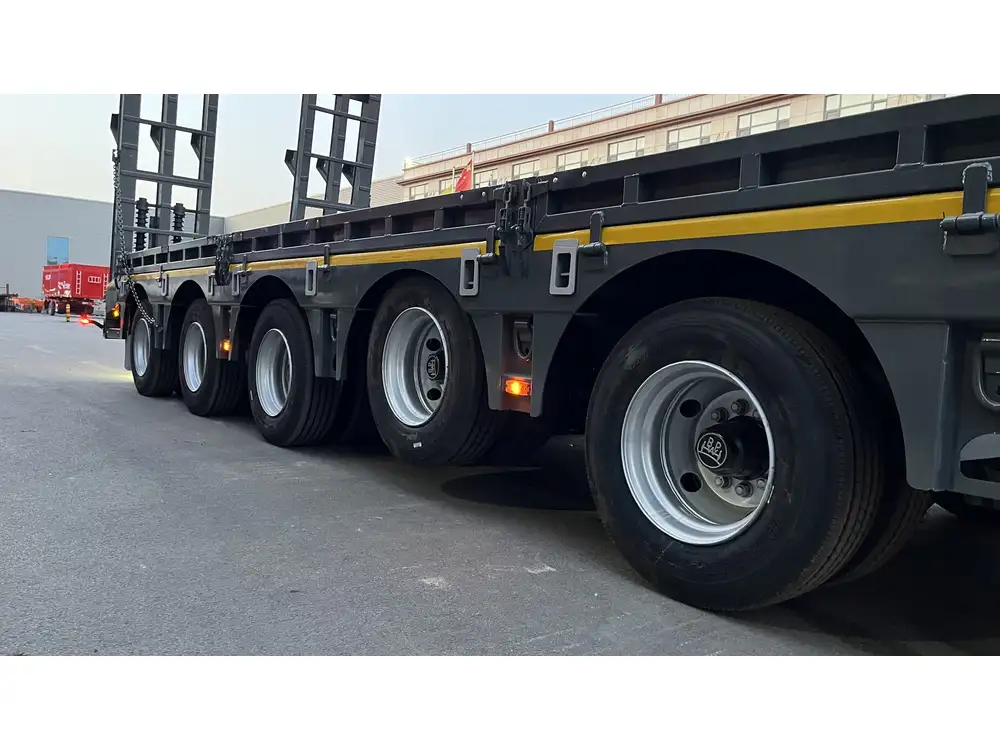
Common ABS Codes and Their Meanings
ABS codes are diagnostic indicators that help identify specific issues within the braking system. These codes are typically alphanumeric and can be retrieved using specialized diagnostic tools. Below is a table of common ABS codes, their meanings, and potential causes:
| ABS Code | Meaning | Potential Causes |
|---|---|---|
| ABS01 | ABS Pump Motor Circuit Malfunction | Faulty pump motor, wiring issues, or connector problems |
| ABS02 | ABS Control Module Failure | Defective control module or software corruption |
| ABS03 | Wheel Speed Sensor A Malfunction | Damaged sensor, wiring faults, or improper alignment |
| ABS04 | Wheel Speed Sensor B Malfunction | Similar to ABS03, specific to a different wheel |
| ABS05 | Hydraulic Control Unit Fault | Leaking hydraulics, internal component failure |
| ABS06 | Brake Light Switch Failure | Faulty switch or wiring issues |
| ABS07 | Master Cylinder Pressure Sensor Error | Sensor malfunction or pressure anomalies |
| ABS08 | Electrical Short in ABS System | Damaged wiring, short circuits |
| ABS09 | ABS Relay Activation Failure | Faulty relay or related circuit issues |
| ABS10 | Communication Error between ABS Components | Intermittent connections or module incompatibility |
Understanding these codes is the first step in diagnosing and addressing ABS-related issues in semi trailers.
Diagnosing ABS Issues in Semi Trailers
Effective diagnosis of ABS problems involves a systematic approach to identify and rectify the root cause of the issue. Here’s a step-by-step guide to diagnosing ABS issues in semi trailers:
1. Retrieve ABS Codes
Utilize a compatible diagnostic scanner to connect to the trailer’s ABS system. The scanner will display stored error codes that indicate specific malfunctions.

2. Interpret the Codes
Refer to the aforementioned table to understand the meaning of each retrieved ABS code. This interpretation narrows down potential problem areas.
3. Visual Inspection
Conduct a thorough visual inspection of the ABS components related to the error codes. Check for obvious signs of damage, wear, or disconnection in sensors, wiring, and connectors.
4. Test Components
Using appropriate tools, perform electrical tests on affected components:
- Sensors: Verify the functionality of wheel speed sensors by checking their resistance and signal outputs.
- Pump Motor: Test the pump motor for continuity and operational integrity.
- Control Module: Ensure the ABS control module is receiving and sending signals correctly.
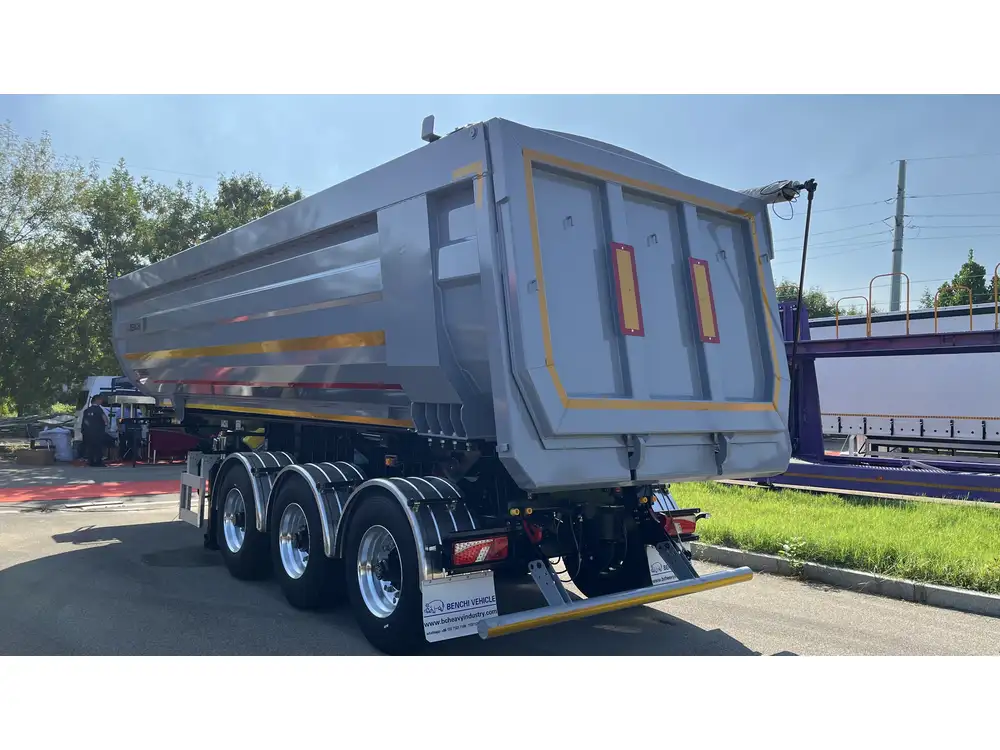
5. Check Wiring and Connectors
Inspect the wiring harnesses and connectors for signs of corrosion, fraying, or disconnections. Repair or replace any compromised wiring to restore proper signal transmission.
6. Address Mechanical Issues
If the ABS failure is due to mechanical components like the hydraulic control unit, inspect for leaks, damage, or internal failures. Replace or repair affected parts as necessary.
7. Clear Error Codes and Test
After addressing the identified issues, use the diagnostic scanner to clear the ABS codes. Conduct a test drive to ensure the ABS system functions correctly and that no new codes appear.
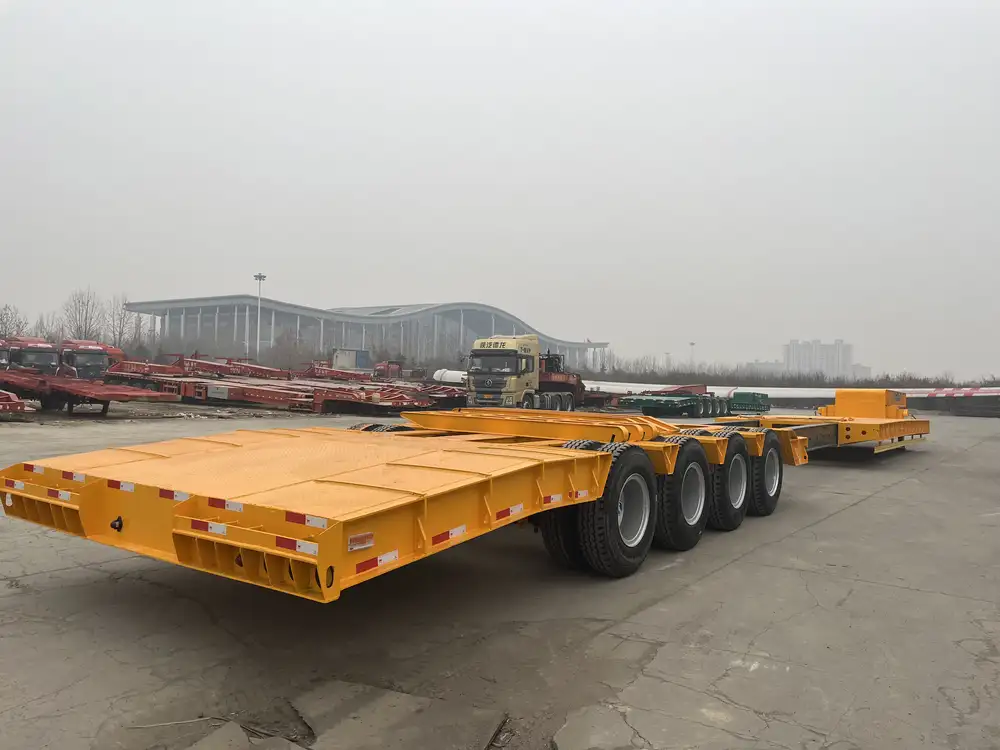
Maintenance and Troubleshooting Tips for ABS Systems
Maintaining the ABS system is essential for ensuring its longevity and reliability. Below are key maintenance practices and troubleshooting tips tailored for semi trailers:
Regular Inspections
Conduct routine inspections of the ABS components, including wheel speed sensors, wiring, and connectors. Early detection of wear or damage can prevent major system failures.
Clean Sensors
Wheel speed sensors are sensitive to debris and dirt. Regularly clean them to ensure accurate readings and optimal performance.

Check Brake Components
Since ABS interacts closely with the braking system, ensure that brake pads, rotors, and hydraulic lines are in good condition. Replace worn-out parts promptly.
Software Updates
Manufacturers often release software updates for ABS control modules to enhance performance and fix known issues. Stay informed about updates from CarMax Trailer and apply them as recommended.
Proper Wiring Management
Ensure that all wiring is securely fastened and protected from physical damage. Use protective conduits and secure loose wires to prevent interference with moving parts.
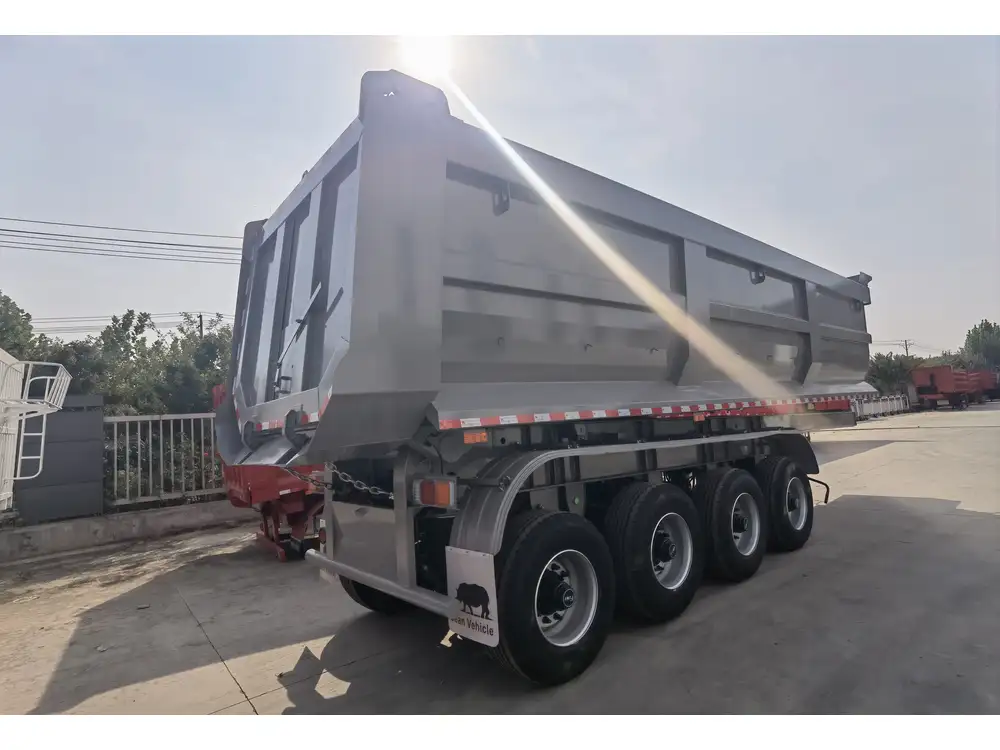
Tire Maintenance
Proper tire inflation and regular rotation contribute to the effective functioning of the ABS system by ensuring consistent wheel speed readings.
Professional Servicing
Engage certified technicians for complex ABS diagnostics and repairs. Their expertise ensures that issues are accurately identified and resolved, maintaining system integrity.
Leveraging CarMax Trailer’s Expertise for Superior ABS Systems
At CarMax Vehicle, we understand the intricacies of semi trailer ABS systems and their critical role in your operations. Our commitment to excellence is reflected in our state-of-the-art manufacturing processes and comprehensive support services designed to keep your trailers performing optimally.
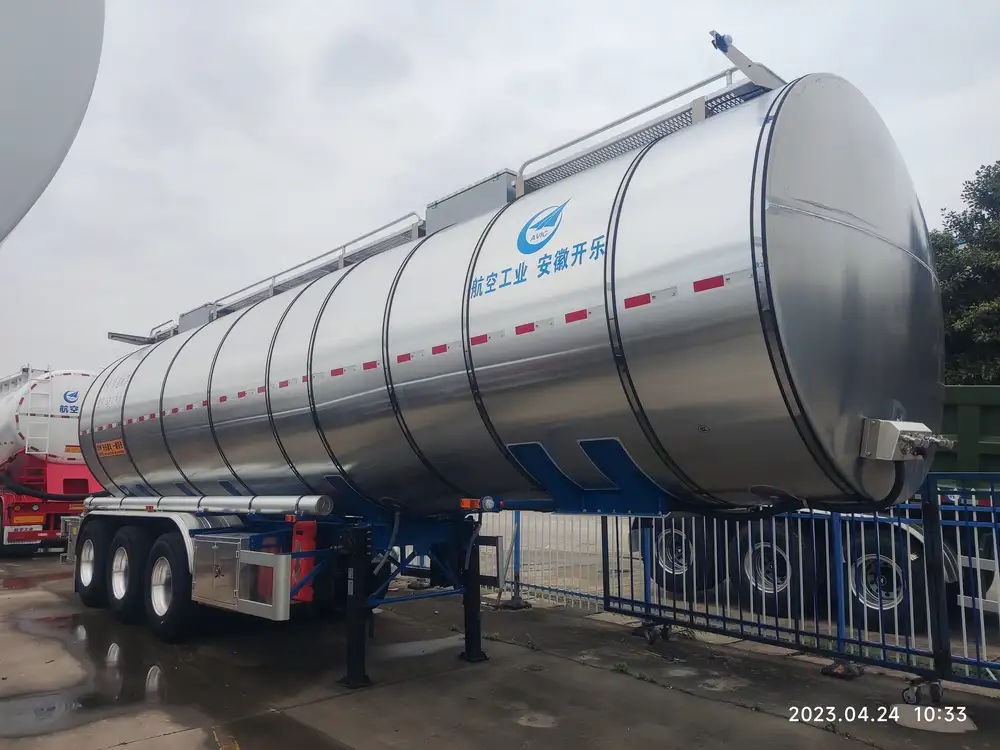
Superior Manufacturing Standards
CarMax Trailer employs rigorous quality control measures to ensure that every ABS component meets the highest industry standards. From durable wheel speed sensors to reliable control modules, our products are engineered for longevity and peak performance.
Advanced Diagnostic Tools
We equip our technicians with the latest diagnostic tools, enabling precise identification and resolution of ABS issues. This technology-driven approach minimizes downtime and enhances fleet reliability.
Comprehensive Support Services
CarMax Trailer offers extensive support services, including regular maintenance schedules, on-site repairs, and detailed troubleshooting guides. Our dedicated customer service team is always ready to assist you in maintaining your ABS systems effectively.

Customized Solutions
Understanding that each fleet has unique requirements, we offer tailored ABS solutions that align with your specific operational needs. Whether you manage a small fleet or a large-scale operation, CarMax Trailer provides the expertise and products to support your success.
Enhancing ABS Performance Through Best Practices
To maximize the effectiveness of your semi trailer’s ABS system, adopting best practices in operation and maintenance is essential. Below are strategies to enhance ABS performance:
Driver Training
Educate drivers on the importance of ABS and proper braking techniques. Skilled drivers can leverage ABS features more effectively, reducing wear and enhancing safety.
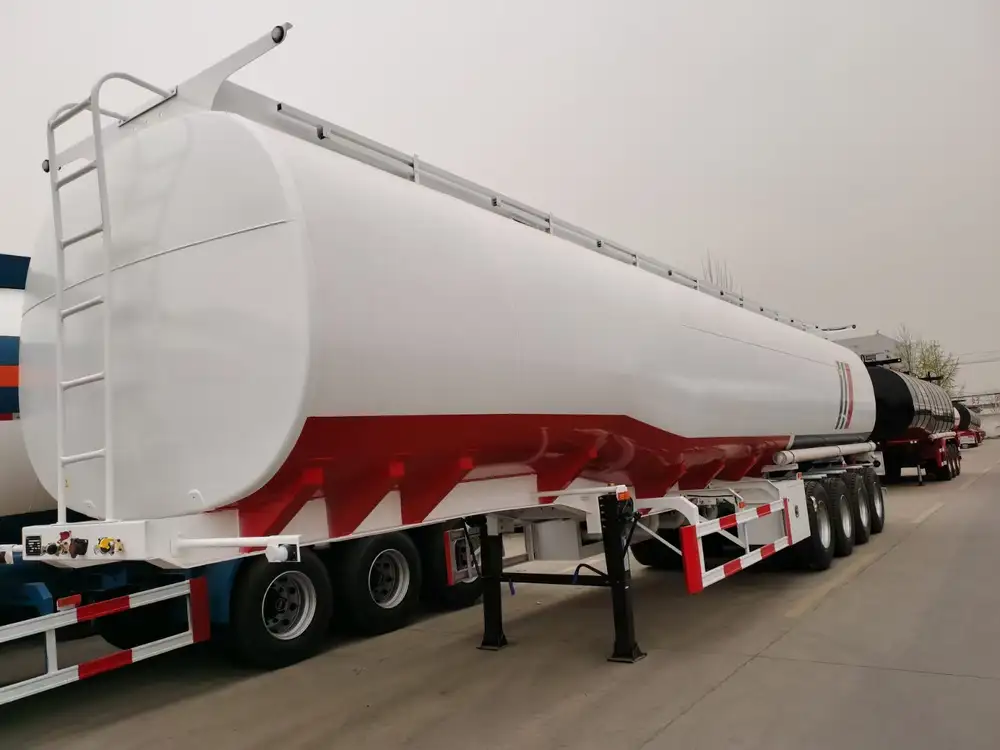
Load Management
Ensure that trailers are loaded within their specified weight limits. Proper load distribution prevents undue strain on the ABS system and maintains trailer stability.
Environmental Considerations
Adapt driving practices to changing weather and road conditions. Understanding how ABS reacts in different environments helps in making informed decisions that maintain control and safety.
Proactive Maintenance
Implement a proactive maintenance schedule that includes regular checks of the ABS system. Early intervention in addressing minor issues can prevent major breakdowns and extend the system’s lifespan.

Documentation and Monitoring
Maintain detailed records of ABS system performance and maintenance activities. Continuous monitoring enables the identification of trends or recurring issues, facilitating timely resolutions.
The Future of ABS Technology in Semi Trailers
As technology advances, ABS systems continue to evolve, incorporating new features and improvements that enhance their functionality and integration with other vehicle systems. Innovations on the horizon include:
Integration with Electronic Stability Control (ESC)
Combining ABS with ESC systems provides a more comprehensive approach to vehicle stability, further reducing the risk of accidents under various driving conditions.

Predictive Maintenance
Utilizing data analytics and machine learning, future ABS systems can predict potential failures before they occur, enabling preemptive maintenance actions that minimize disruptions.
Enhanced Connectivity
Leveraging Internet of Things (IoT) technologies, ABS systems will offer real-time data transmission, allowing for remote monitoring and faster diagnostic processes.
Autonomous Braking Systems
The integration of ABS with autonomous braking technologies will pave the way for fully automated braking systems that enhance safety and reduce the reliance on manual braking intervention.

Why CarMax Trailer is Your Partner in ABS Excellence
Choosing CarMax Trailer means partnering with a leader in semi trailer manufacturing, dedicated to delivering top-notch ABS solutions that meet the highest standards of safety and performance. Our extensive industry experience, innovative manufacturing techniques, and unwavering commitment to customer satisfaction make us the preferred choice for fleet operators seeking reliability and excellence.
Key Benefits of Choosing CarMax Trailer:
- High-Quality Components: We use only premium materials and advanced engineering practices to produce ABS systems that withstand the rigors of commercial transportation.
- Expert Support: Our team of certified technicians and support staff are always available to provide assistance, ensuring your ABS systems remain functional and efficient.
- Customized Solutions: We offer bespoke ABS configurations tailored to your specific trailer types and operational needs, enhancing compatibility and performance.
- Comprehensive Warranty: CarMax Trailer stands behind its products with robust warranty options, providing peace of mind and protection for your investment.
- Sustainability Focus: We are committed to environmentally responsible manufacturing practices, ensuring that our ABS systems contribute to sustainable transportation solutions.
Conclusion
The Anti-lock Braking System is a cornerstone of safety and efficiency in semi trailers, making the understanding and maintenance of ABS codes essential for fleet operators. By comprehensively diagnosing ABS issues, adhering to best maintenance practices, and leveraging the expertise of CarMax Trailer, you can ensure that your trailers remain reliable and safe on the roads. As ABS technology continues to advance, staying informed and proactive in managing your ABS systems will position your fleet for sustained success and operational excellence.

Frequently Asked Questions (FAQs)
1. What do ABS codes indicate in a semi trailer’s braking system?
ABS codes are diagnostic indicators that signal specific issues within the Anti-lock Braking System. Each code corresponds to a particular malfunction, such as sensor failures, pump motor issues, or communication errors, helping technicians identify and address the root cause of ABS-related problems.
2. How can I reset ABS codes after fixing an issue?
After resolving the identified ABS issues, use a compatible diagnostic scanner to clear the stored ABS codes. Once cleared, perform a test drive to ensure that the ABS system operates correctly and that no new error codes appear. If codes persist, further diagnosis may be necessary.
3. What are the common causes of ABS sensor failures in semi trailers?
Common causes of ABS sensor failures include physical damage from road debris, electrical wiring issues, misalignment due to suspension problems, and contamination from dirt or moisture. Regular inspections and maintenance can help prevent sensor failures.
4. How often should I perform maintenance on my semi trailer’s ABS system?
It’s recommended to inspect the ABS system during regular maintenance intervals, typically every 10,000 to 15,000 miles or as specified by CarMax Trailer. Regular checks of sensors, wiring, and brake components can ensure the ABS system remains in optimal condition.
5. Can driving habits affect the lifespan of the ABS system in semi trailers?
Yes, aggressive driving, excessive braking, and overloading can strain the ABS system, leading to premature wear and potential failures. Adopting smooth braking techniques and adhering to load specifications can prolong the lifespan of the ABS system.



